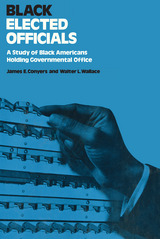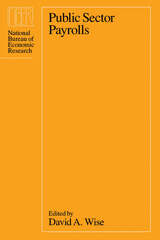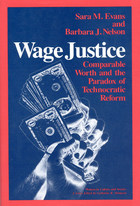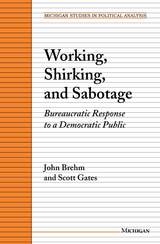4 books about Local officials and employees

Black Elected Officials
Study of Black Americans Holding Government Office
James Conyers
Russell Sage Foundation, 1976
Presents the first nationwide profile of black Americans (over 3,500) who now hold elective governmental office. The book is based upon a questionnaire survey of black elected officials together with a comparison survey of white men and women elected to similar types of offices in the same geographical region. The inclusion of extensive quotations from interviews with thirty-four black elected officials adds realism, depth, and insight to the quantitative analysis. The authors interrelate fresh and meaningful information on the political ideologies and motivations of black officials, their perceived political impacts, and expectations for the future. Presents the first nationwide profile of black Americans (over 3,500) who now hold elective governmental office. The book is based upon a questionnaire survey of black elected officials together with a comparison survey of white men and women elected to similar types of offices in the same geographical region. The inclusion of extensive quotations from interviews with thirty-four black elected officials adds realism, depth, and insight to the quantitative analysis. The authors interrelate fresh and meaningful information on the political ideologies and motivations of black officials, their perceived political impacts, and expectations for the future.
[more]

Public Sector Payrolls
Edited by David A. Wise
University of Chicago Press, 1987
An estimated one out of five employees in this country works for some branch of government. Because policies concerning the compensation of these employees rest on assumptions about the economic dynamics of the public sector, the issue of public sector employment is of vital importance in the analysis of the national economy. In Public Sector Payrolls, leading economists explore the independent and interdependent functioning of the public and private sectors and their effect on the economy as a whole.
The volume, developed from a 1984 National Bureau of Economic Research conference, focuses on various labor issues in military and other governmental employment. Several contributors discuss compensation in the armed forces and its relationship to that in the private sector, as well as the interaction between the military and the private sector in the employment of youth. This latter is of particular interest because studies of youth employment have generally ignored the important influence of military hiring practices on labor market conditions. In other contributions, the response of wages and employment in the public sector to economic conditions is analyzed, and a detailed study of government pension plans is presented. Also included is a theoretical and empirical analysis of comparable worth in the public sector from the viewpoint of analytical labor economics. The volume concludes with a look at public school teachers' salaries in the context of current debates over improving the quality of American education.
A valuable resource to policymakers, Public Sector Payrolls will be an important addition to research in the field of labor economics.
The volume, developed from a 1984 National Bureau of Economic Research conference, focuses on various labor issues in military and other governmental employment. Several contributors discuss compensation in the armed forces and its relationship to that in the private sector, as well as the interaction between the military and the private sector in the employment of youth. This latter is of particular interest because studies of youth employment have generally ignored the important influence of military hiring practices on labor market conditions. In other contributions, the response of wages and employment in the public sector to economic conditions is analyzed, and a detailed study of government pension plans is presented. Also included is a theoretical and empirical analysis of comparable worth in the public sector from the viewpoint of analytical labor economics. The volume concludes with a look at public school teachers' salaries in the context of current debates over improving the quality of American education.
A valuable resource to policymakers, Public Sector Payrolls will be an important addition to research in the field of labor economics.
[more]

Wage Justice
Comparable Worth and the Paradox of Technocratic Reform
Sara M. Evans and Barbara N. Nelson
University of Chicago Press, 1989
"This pathbreaking study sets forth the history of attempts to implement pay equity and evaluates the hidden costs of achieving equity. With candor and intelligence, the authors clearly detail the political, organizational, and personal consequences of comparable worth reform strategies. Using extensive data from Minnesota, where pay equity has proceeded further than in any other state in the nation, as well as comparative information from other states and localities, the authors expose the crucial initial steps which define public policy.
"A perceptive and judicious analysis of comparable worth."—Wendy Kaminer, New York Times Book Review
"Very well-crafted. . . . Wage Justice has admirably launched the scholarly evaluation of pay equity, revealing the unforeseen complexities of this key feminist public policy innovation."—Maurine Weiner Greenwald, Journal of American History
"An insightful glimpse of the policy process."—Marian Lief Palley, American Political Science Review
"A perceptive and judicious analysis of comparable worth."—Wendy Kaminer, New York Times Book Review
"Very well-crafted. . . . Wage Justice has admirably launched the scholarly evaluation of pay equity, revealing the unforeseen complexities of this key feminist public policy innovation."—Maurine Weiner Greenwald, Journal of American History
"An insightful glimpse of the policy process."—Marian Lief Palley, American Political Science Review
[more]

Working, Shirking, and Sabotage
Bureaucratic Response to a Democratic Public
John Brehm and Scott Gates
University of Michigan Press, 1999
Bureaucrats perform most of the tasks of government, profoundly influencing the daily lives of Americans. But who, or what, controls what bureaucrats do?
John Brehm and Scott Gates examine who influences whether federal, state, and local bureaucrats work, shirk, or sabotage policy. The authors combine deductive models and computer simulations of bureaucratic behavior with statistical analysis in order to assess the competing influences over how bureaucrats expend their efforts. Drawing upon surveys, observational studies, and administrative records of the performance of public employees in a variety of settings, Brehm and Gates demonstrate that the reasons bureaucrats work as hard as they do include the nature of the jobs they are recruited to perform and the influence of both their fellow employees and their clients in the public. In contrast to the conclusions of principal-agency models, the authors show that the reasons bureaucrats work so hard have little to do with the coercive capacities of supervisors.
This book is aimed at students of bureaucracy and organizations and will be of interest to researchers in political science, economics, public policy, and sociology.
"This book is breathtaking in its use of models and techniques. . . . The approach developed by Brehm and Gates allows us to re-open empirical questions that have lain dormant for years." --Bryan D. Jones, University of Washington
John Brehm is Associate Professor of Political Science, Duke University. Scott Gates is Associate Professor of Political Science, Michigan State University.
John Brehm and Scott Gates examine who influences whether federal, state, and local bureaucrats work, shirk, or sabotage policy. The authors combine deductive models and computer simulations of bureaucratic behavior with statistical analysis in order to assess the competing influences over how bureaucrats expend their efforts. Drawing upon surveys, observational studies, and administrative records of the performance of public employees in a variety of settings, Brehm and Gates demonstrate that the reasons bureaucrats work as hard as they do include the nature of the jobs they are recruited to perform and the influence of both their fellow employees and their clients in the public. In contrast to the conclusions of principal-agency models, the authors show that the reasons bureaucrats work so hard have little to do with the coercive capacities of supervisors.
This book is aimed at students of bureaucracy and organizations and will be of interest to researchers in political science, economics, public policy, and sociology.
"This book is breathtaking in its use of models and techniques. . . . The approach developed by Brehm and Gates allows us to re-open empirical questions that have lain dormant for years." --Bryan D. Jones, University of Washington
John Brehm is Associate Professor of Political Science, Duke University. Scott Gates is Associate Professor of Political Science, Michigan State University.
[more]
READERS
Browse our collection.
PUBLISHERS
See BiblioVault's publisher services.
STUDENT SERVICES
Files for college accessibility offices.
UChicago Accessibility Resources
home | accessibility | search | about | contact us
BiblioVault ® 2001 - 2024
The University of Chicago Press









